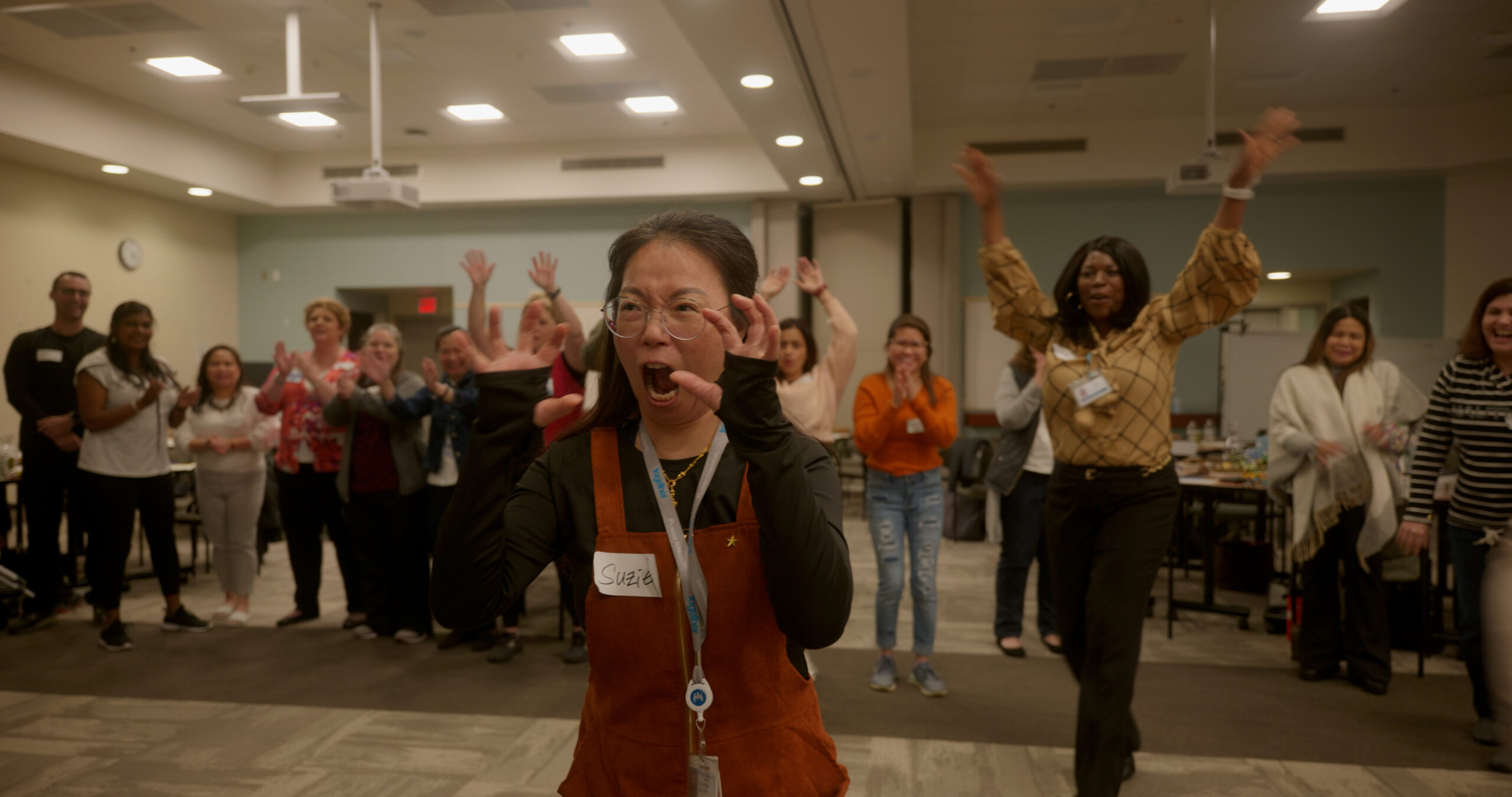While nurses are often cast as heroes in movies and TV shows, the tragedies they endure on the job are seldom neatly resolved when their shifts end. And unlike the protagonists found in popular dramas, it can be difficult for these front-line workers to find emotional release after a devastating day at the hospital.
Nurses have reported that the challenges facing the industry feel all the more pronounced in the wake of Covid. A 2023 study from the National Council of State Boards of Nursing revealed that around 100,000 nurses left the field during the pandemic. By 2027, the council expects 900,000 more nurses—one-fifth of the workforce—to defect.
While there is no apparent panacea for the industry, one Denver-based nurse Tara Rynders has an unconventional idea to get nurses moving in the right direction, so to speak.
This week, Rynders will lead hundreds of nurses through two days of dancing, crying and laughing at the California Endowment’s Center for Healthy Communities in Downtown Oakland.
A registered nurse for the past 20 years, Rynders calls her idea the Clinic, and simply put, it’s a workshop designed for nurses to heal from their secondary trauma stress, compassion fatigue and chronic burnout together.
“We herald health care providers as superheroes,” she said. “They’re expected to jump from buildings without any capes.”
These staggering expectations are often couched in terms like “resiliency”—a euphemism Rynders said she’s come to hate. She argues that a hospital is not a paragon of resilience and that demanding nurses to remain resilient puts an unfair onus on them.
“It’s like asking someone to stay in a bad relationship and just take a walk or have a bubble bath,” she said.
As Rynders told The Standard, her professional issues turned personal when she was 26 and her mother died, an event that left her emotionally unmoored.
“And my definition of resiliency was always bouncing back harder and faster,” she said. “But at that moment, I couldn’t bounce back.”
Making the decision to cut back on nursing, Rynders returned to school to pursue a degree in dance—an experience she said gave her the language to express her grief.
“It was a process of softening and finding safe spaces and community with others,” she said.
Following her studies, Rynders gave birth to twins and almost died from an ectopic pregnancy. She told The Standard that she faintly remembers when she was lying in a hospital bed in critical condition, a nurse whispered in her ear that she was going to be OK.
“After that, I realized how I was burned out as a nurse, and I wanted to shift the way we operate as health care professionals,” she said.
Leveraging her dance training, Rynders created the Clinic in 2017, as well as an immersive dance piece that drew upon the experiences of her community of nurses.
When she launched the workshop, she said nurses, as a whole, weren’t quite ready to admit they had a burnout problem. But as she found out, Covid changed everything. During a recent discussion with 600 nurses, Rynders said she was struck by something one of the participants said.
“She said, ‘I can go home and talk to my partner and therapist, but when I talk to other nurses, that’s when I experience healing,’” Rynders recalled.
How has this sentiment become the norm? Rynders likened the experience of being a nurse to the #MeToo movement, when the compounding emotional impact of work creates a trauma response—stirring up feelings of guilt and shame.
“We just feel like we’re alone,” she said. “A lot of this workshop is about realizing you’re not alone.”
Over the past six years, Rynders has taken the Clinic to nine hospitals across the country. It opens with a series of playful exercises to carve out a comfort zone in the room. Rynders facilitates storytelling sessions so participants can process their trauma and grief. The day culminates with a dance circle—an emotional release that Rynders said usually elicits some combination of tears and laughter.
In a press release, a participant named Charlene Johnson said the workshop gave them the space to truly decompress.
“If you come in empty, you’re going to leave fulfilled and ready to go spread the light like you once did before,” they said.
Rynders said she also sees the workshop as an opportunity for hospitals to undertake a real moment of reckoning.
“Hospitals are floundering at every turn right now,” she said. “Nurses are leaving the field very quickly, and this is one really innovative way for hospitals to care for their teams.”
